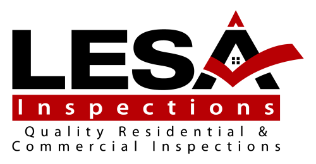DOORS, WINDOWS & INTERIOR
The inspector shall inspect:
- a representative number of doors and windows by opening and closing them;
- floors, walls and ceilings;
- stairs, steps, landings, stairways and ramps;
- railings, guards and handrails; and
- garage vehicle doors and the operation of garage vehicle door openers, using normal operating controls.
The inspector shall describe:
- a garage vehicle door as manually-operated or installed with a garage door opener.
The inspector shall report as in need of correction:
- improper spacing between intermediate balusters, spindles and rails for steps, stairways, guards and railings;
- photo-electric safety sensors that did not operate properly; and
- any window that was obviously fogged or displayed other evidence of broken seals.
The inspector is not required to:
- inspect paint, wallpaper, window treatments or finish treatments.
- inspect floor coverings or carpeting.
- inspect central vacuum systems.
- inspect for safety glazing.
- inspect security systems or components.
- evaluate the fastening of islands, countertops, cabinets, sink tops or fixtures.
- move furniture, stored items, or any coverings, such as carpets or rugs, in order to inspect the concealed floor structure.
- move suspended-ceiling tiles.
- inspect or move any household appliances.
- inspect or operate equipment housed in the garage, except as otherwise noted.
- verify or certify the proper operation of any pressure-activated auto-reverse or related safety feature of a garage door.
- operate or evaluate any security bar release and opening mechanisms, whether interior or exterior, including their
- compliance with local, state or federal standards.
- operate any system, appliance or component that requires the use of special keys, codes, combinations or devices.
- operate or evaluate self-cleaning oven cycles, tilt guards/latches, or signal lights.
- inspect microwave ovens or test leakage from microwave ovens.
- operate or examine any sauna, steam-generating equipment, kiln, toaster, ice maker, coffee maker, can opener, bread warmer,
- blender, instant hot-water dispenser, or other small, ancillary appliances or devices.
- inspect elevators.
- inspect remote controls.
- inspect appliances.
- inspect items not permanently installed.
- discover firewall compromises.
- inspect pools, spas or fountains.
- determine the adequacy of whirlpool or spa jets, water force, or bubble effects.
- determine the structural integrity or leakage of pools or spas.
EXTERIOR
The inspector shall inspect:
- the exterior wall-covering materials;
- the eaves, soffits and fascia;
- a representative number of windows;
- all exterior doors;
- flashing and trim;
- adjacent walkways and driveways;
- stairs, steps, stoops, stairways and ramps;
- porches, patios, decks, balconies and carports;
- railings, guards and handrails; and
- vegetation, surface drainage, retaining walls and grading of the property, where they may adversely affect the structure due
- to moisture intrusion.
The inspector shall describe:
- the type of exterior wall-covering materials.
The inspector shall report as in need of correction:
- any improper spacing between intermediate balusters, spindles and rails.
The inspector is not required to:
- inspect or operate screens, storm windows, shutters, awnings, fences, outbuildings, or exterior accent lighting.
- inspect items that are not visible or readily accessible from the ground, including window and door flashing.
- inspect or identify geological, geotechnical, hydrological or soil conditions.
- inspect recreational facilities or playground equipment.
- inspect seawalls, breakwalls or docks.
- inspect erosion-control or earth-stabilization measures.
- inspect for safety-type glass.
- inspect underground utilities.
- inspect underground items.
- inspect wells or springs.
- inspect solar, wind or geothermal systems.
- inspect swimming pools or spas.
- inspect wastewater treatment systems, septic systems or cesspools.
- inspect irrigation or sprinkler systems.
- inspect drainfields or dry wells.
- determine the integrity of multiple-pane window glazing or thermal window seals.
